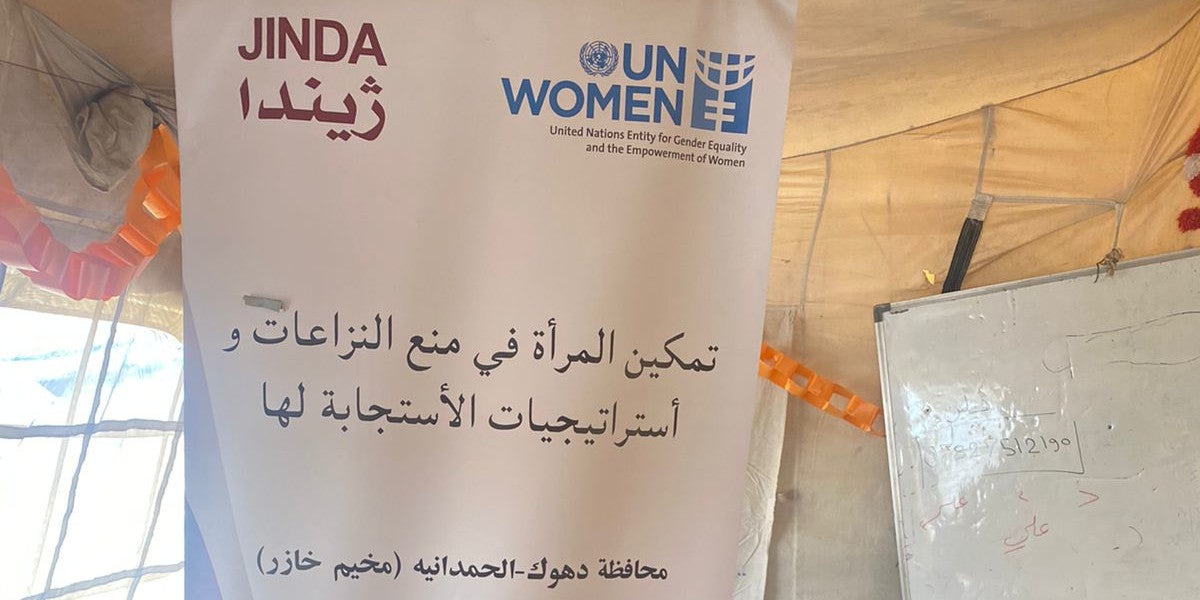Bringing hope to women in Iraq
Date:

The decades of war in Iraq had a severe impact on women and girls whose lives were uprooted physically as they fled the terrors of violence. Many were left vulnerable, facing poverty, with little education and a poor social standing in the community. The custom of a bride price or dowry encouraged the practice of girl marriage and when families faced poverty it forced many to sell female children into marriage, frequently to much older men. The child brides were taken out of school, their lives were put in danger when they became pregnant as children and they also faced a life destined in a trap of poverty, without opportunities to fulfil their potential.
The high numbers of deaths during the war years left uncounted numbers of women as widows, struggling to support their families. This created huge stress for girls and women when dramatic changes were made to their perceived roles in society. Communities ostracised widows and left them and their families in isolation trying to survive to meet their daily needs.
Sakna Mahmoud knew all about this scenario. She spent her early childhood in her home village of Hassania, close to the city of Mosul. Sakna had no choice when as a 13-year-old child, her family arranged her marriage to a 22-year-old man, which put an end to her education. Now Sakna is now 32 and finds herself a widow with limited education.
When tribal conflict broke out in her region in 2017, insecurity and zero resources with no income, job or qualifications, led Sakna to flee Khazer Camp for safety. She still lives there with her widowed mother who is ill, her sister and her own five children in the camp.
UN Women teamed up with Jinda Organization an organisation that work on the ground in the camp to support women like Sakna. UN Women provide the technical skills and knowledge to set up courses targeting vulnerable women. With funding support through UN Women donors, Jinda Organization
facilitated a Women’s Empowerment for Dispute Prevention and Response Strategies programme for women in Khazer Camp.
Sakna came across the course through word of mouth. Her sister and friends had come through the workshop and felt that Sakna would benefit. “I used to face many difficulties when dealing with people who are not in my circle, I just didn’t have the confidence and felt really shy when I was presented with problems. I suffered many difficulties living in the camp and didn’t have any knowledge about how to solve my problems,” she said. “I felt very frustrated and angry until I was introduced to the course. It taught me how to engage with people and provided me with the opportunity to role-play dealing with difficult people, which boosted my confidence.”
Sakna saw the opportunity to develop herself and overcome her shyness. She is now spokesperson for the group and feels less isolated because she has met other women in similar situations. “I feel that my friends and I have really developed since we began learning,” Sakna said. “Most of us have very low levels of education and it puts up barriers in society.”
She concludes, “We need similar sessions to help develop life skills because we have multiple roles now as mothers, fathers and brothers combined. I am so grateful to my trainer in Hope Retrievers, and I look forward to taking part in similar courses in the future.”